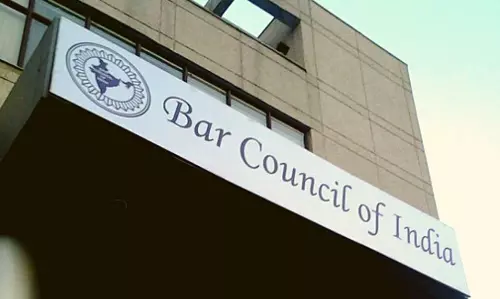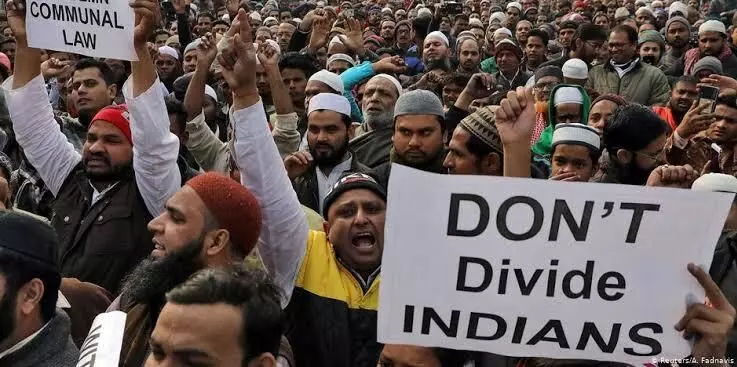
Centre moves to implement CAA rules in other way in 5 states
text_fieldsThe Central Government on Friday released a gazette notification granting powers under existing rules to authorities in 13 districts of Gujarat, Chhattisgarh, Rajasthan, Haryana and Punjab to accept, verify and approve citizenship applications from members of minority communities hailing from Pakistan, Afghanistan and Bangladesh.
"In exercise of the powers conferred by section 16 of the Citizenship Act, 1955 (57 of 1955), the Central Government hereby directs that powers exercisable by it, for registration as a citizen of India under section 5, or grant of certificate of naturalisation under section 6, of the Citizenship Act, 1955, in respect of any person belonging to the minority community in Afghanistan, Bangladesh and Pakistan, namely, Hindus, Sikhs, Buddhists, Jains, Parsis and Christians… shall also be exercisable by the Collector, within whose jurisdiction the applicant is ordinarily resident," the notification said, as quoted by the Indian Express.
The Home Ministry has clarified that since the rules for the Citizenship Amendment Act (2020) have not been framed, the order has been issued under the Citizenship Act, 1955 and the Citizenship Rules, 2009. The notification states that the applications will have to be submitted online. In 2018, the Government had granted similar powers to Collectors and Home Secretaries of states such as Chhattisgarh, Madhya Pradesh, Gujarat, Rajasthan, Uttar Pradesh and Delhi with regard to certain districts.
"The verification of the application is done simultaneously by the Collector or the Secretary, as the case may be, at the district level and the state level and the application and the reports thereon shall be made accessible simultaneously to the Central Government on the online portal," the order said.
The districts listed in the notification are Morbi, Rajkot, Patan and Vadodara (Gujarat); Durg and Balodabazar (Chhattisgarh); Jalore, Udaipur, Pali, Barmer and Sirohi (Rajasthan); Faridabad (Haryana); and, Jalandhar (Punjab).
The order also states that the Collector or the Secretary has the power to grant citizenship of India by registration or naturalisation and issues a certificate of registration or naturalisation on being satisfied with the suitability of the applicant.
"This can be duly printed from the online portal and signed by the Collector or the Secretary, as the case may be, in the form as prescribed in the said rules," the notification said.
Collectors and Secretaries have been asked to maintain an online as well as physical register, containing details of the person registered or naturalised as a citizen of India and furnish a copy to the Central Government within seven days of registration or naturalisation.
The move to lay the foundation for the CAA harks back to 2019 when the Parliament amended the Citizenship Act granting citizenship to illegal immigrants belonging to Hindu, Jain, Sikh, Parsi, Christian and Buddhist communities from Pakistan, Bangladesh and Afghanistan. The exclusion of Muslims from the legislation was passed amid strong criticism from the Opposition, which called it discriminatory and triggered massive nationwide protests.
























